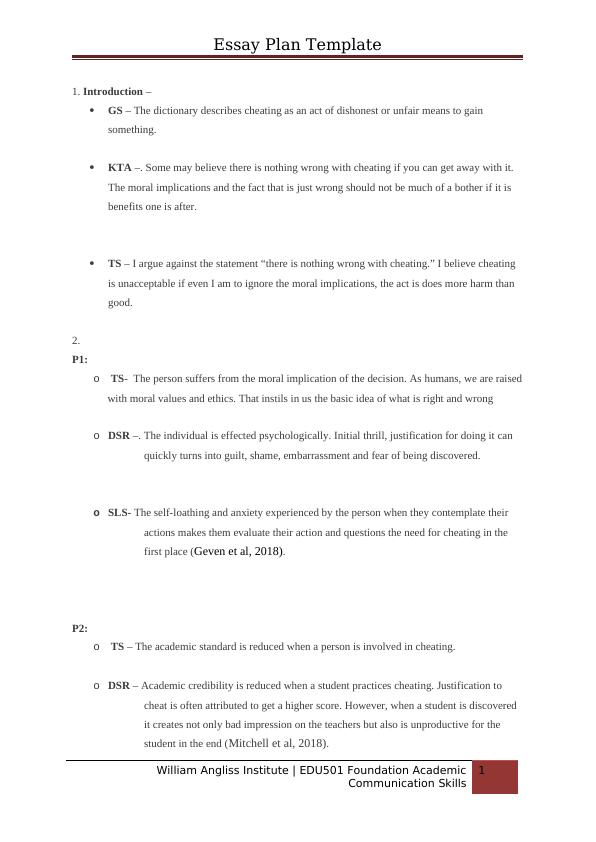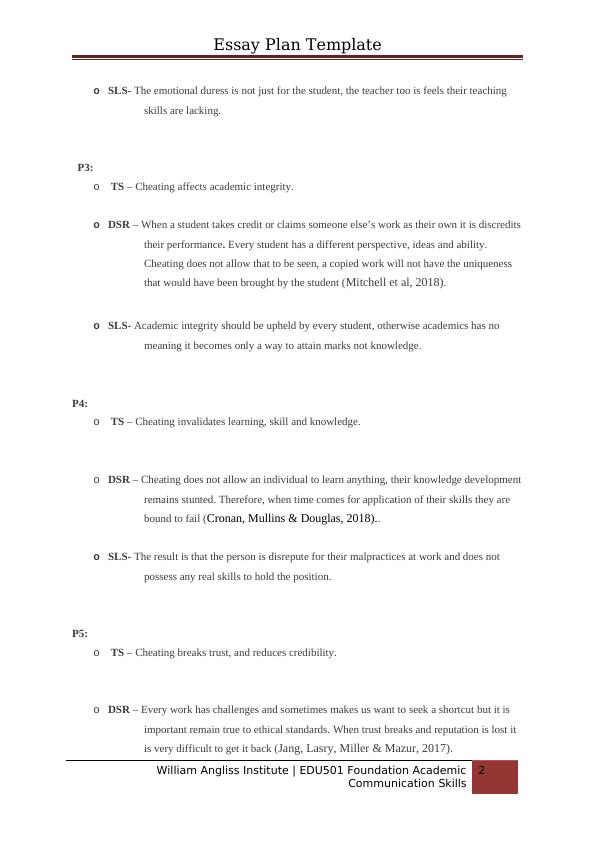The Harmful Implications of Cheating in Academics
Develop an essay plan on the topic 'There's nothing wrong with cheating!' and provide arguments for and against the statement based on existing research.
4 Pages902 Words209 Views
Added on 2022-10-04
About This Document
This article discusses the harmful implications of cheating in academics. It argues that cheating is unacceptable, as it affects an individual's moral values, academic credibility, academic integrity, knowledge development, and trust. The article provides evidence from various studies to support its claims.
The Harmful Implications of Cheating in Academics
Develop an essay plan on the topic 'There's nothing wrong with cheating!' and provide arguments for and against the statement based on existing research.
Added on 2022-10-04
ShareRelated Documents
End of preview
Want to access all the pages? Upload your documents or become a member.


